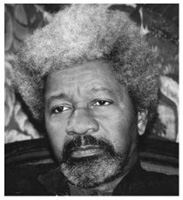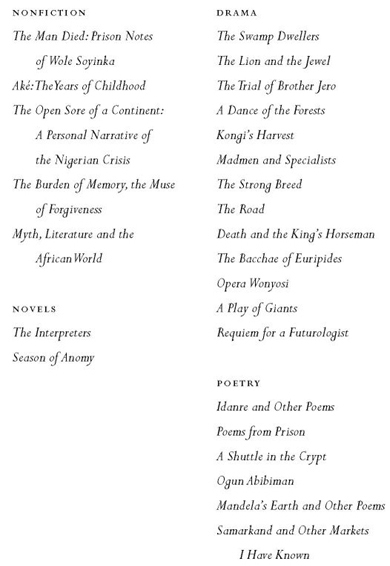Climate of Fear (12 page)

What we have witnessed in the
tearing out of the heart,
liver, and tongue
of the United States, the hideous conversion of captive human beings into battering rams for the destruction of other innocents, is an image of such diabolical horror that the imagination instinctively recoils from its full grasp, even after subsequent, seemingly competitive horrors. It will remain so for years. To accept it as a valid and appropriate response to injustices perpetrated by American governments against other people is to abdicate all capacity for moral revulsion. Those very voices that were raised in condemnation of the violation of a mosque in Jerusalem by an Israeli reservist who massacred dozens of worshippers in cold bloodâthose are the same voices that are now raised, among others, against the violation of humanity on September 11, 2001. And the passion of those voices must not be belittled, cowed, or isolated. And yes, even as the murder of Muslims in East Jerusalem, though it took place in a specific milieu, was a crime against our humane universe, even so must the outrage that was committed on American soil on September 11 be recognized and addressed for what it wasâa crime against all of humanity, and one that deserves the sternest collective response of that same Community.
Could the United States have responded differently immediately after September 11? Perhaps not. Hindsight is a most unreliable judge of such decisions, and those circumstances were clearly unprecedented. Did that nation, however, have to continue along an avoidable path that led remorselessly into Iraq? More specifically, and with no complication of hindsight: why were the weapons inspectors of the United Nations ordered out of Iraq in submission to the will of one nation,
most especially at a
moment when Saddam Hussein had openly submitted himself to
the authority of that very institution?
Let us turn to our present dateline. It is still the second millennium, the era of the so-called global village. Concretely, it is the era in which the world has attempted to put in place, after many blunders and derelictions of responsibilities, international courts and tribunals for crimes against humanity. It is an era in which former heads of state are being hauled in for crimes against their own peoples and against othersâfrom Chile to Rwanda. It is the era of the strategy of near-globally upheld sanctions, not always successful, we know, and sometimes excruciatingly slow in their ability to produce the desired results. It is nevertheless the era of newly reinvigorated possibilities, a new global relevance for the organ called the United Nations. Indeed, perhaps it was stemming from this same consciousness, an attempt to impress upon the world the critical necessity of such an organ in the new millennium, that the Nobel establishment, in its centenary year, chose to honor that organization, and its secretary-general, with the Peace Prize. We cannot deny or gloss over some of its failures to live up to the world's expectations, to its founding ideas, and to the needs of humanity. We are only too keenly aware of the costly consequencesâin global trust, and in human livesâof some of these failures. Nevertheless, we are doomed to despair if we fail also to acknowledge its many achievements, and to accept the fact that it is the only organ in the world that has the authority of legitimate intervention in troubled spots.
Unilateral action, or the appropriation of a global duty of response, by any one nation serves only to diminish the United Nations. That the greatest culprit in this respect should be one of such powerful achievements as the United States, one that is also host to that organization, physically, on its own soil, only denotes an enervation of the global vision. That the United States has the capacity for technological, military, and economic leadership is not in dispute; what the United States lacks is philosophical leadership, despite its formidable reserves of original thinkers. Adopting a global view of a criminality on its soil, and primarily against its people, the U.S. had the option of placing its formidable capabilities under the moral authority of the United Nations, instilling in her own people the imperatives of a global approach to justice.
AMERICA STRIKES BACK!
No, this resort to what we earlier identified as rhetorical hysteria was not what the world needed to see emblazoned on the screens of American television and its international arm, CNN, hour after hour, day after day, and week after week as the United States gathered its strength to avenge an acknowledged wrong. Such an orchestration of a people's mood was bound to lead, sooner or later, to the quagmire of Iraq, and to make the nation lose all ethical mooring in the original cause and embark on an open-ended career of aggressive pursuit that would translate as
America Strikes
Onâand On and . . . On . . . and On . . . , its lethal array of weaponry raised to
shock and awe!
If certain acts against humanity appear to place their perpetrators beyond dialogue, we must still embrace interrogationâthat is, self-interrogation. In what way, in turn, have we contributed to the making of such a moment? Failure thus to examine ourselves limits the long-term effectiveness of response, and brackets us with the mentality of the fanatic who, literally, never seeks to recover, indeed is incapable of recovering, a long-since receded moment of doubt, the zone of possible choices, the potential of the routes not taken. That quest is open, universal, and ahistorical. For once, the dubious doctrine of
There are no innocents
is grounded in durable matter. Has Marxism triumphed since the killing of Leon Trotsky? What nature of an environment enabled the stabbing of a creative mind, Naguib Mahfouz? Was peaceful coexistence promoted as a result of the demolition of the mosque in Uttar Pradesh? Has the assassination of Sheikh Yassin made the world any safer? What kind of morality of a liberation struggle deceives a fourteen-year-old child into becoming a walking bomb? Does a supposed wall of defense concretize hope or despair across the Middle Eastâand the world? Why is the woman writer Taslima Nasrin a fugitive from her home in Bangladesh?
Reaching back through time to the thread of my earlier intervention, “Climates of Art,” made twenty-five years ago, the last word deserves to be offered on behalf of that last, doubly endangered (on account of her gender) species, victim of intolerance and fanaticism, who barely escaped the fate of the Algerian Tahar Djaout and a host of others, standing in for the disdained of the world, seeking equity for all humanity:
Some words are coarse, obscene, indecent.
They make a case for censorship, such words as
Pagan, heathen, infidel, unbeliever, kafiri etc.
The cleric swears he'll sweep the streets clean
Of the unclean, armed with Book and Beard. Both
Turn kindling, but overturn the law of physics.
For the fire consumes all but the arsonist. He lives
To preach another day. The promised beast
Of the Apocalypse left me unbeliever
Till a rambling cleric apportioned death on CNNâ
Surely that devil's instrument!âon Taslima Nasrin.
She wrote of an equalizing God, androgynous,
Who deals, ambidextrous, with the Left and Right.

WOLE SOYINKA was born on July 13, 1934, in Abeokuta, Western Nigeria, and lived with his family in the Aké quarter of the city. His homeland was then still a British dependency. His father was headmaster of an Anglican primary school, and his mother, whom he nicknamed “Wild Christian,” was a shop owner and trader. In 1981, Soyinka published
Aké,
a memoir about his youth, described in The New York Times as “a classic of childhood memoirs wherever and whenever produced.”
Early on, Soyinka became involved in and inspired by both Nigeria's fight for independence and the revolt in which his mother was a leading activist against a tax on women. He described the tax revolt as “the earliest event I remember in which I was really caught up in a wave of activism and understood the principles involved. Young as I was, it all took place around me, discussions took place around me, and I knew what forces were involved. But even before [the tax revolt], I'd listened to elders talking, and I used to read the newspapers on my father's desk. This was a period of anticolonial fervor, so the entire anticolonial training was something I imbibed quite early, even before the women's movement.”
After studying Greek, English, and History at Ibadan University in Nigeria from 1952 to 1954, Soyinka traveled to England to study English Literature at Leeds University. On graduating, he worked as a play reader for London's Royal Court Theatre, where he directed some of his own early plays. In 1960, he returned to Nigeria to research West African drama, and wrote and directed dramatic sketches critical of the government.
Four years later, Soyinka again ran afoul of the government. After being accused of holding up a radio station to prevent the broadcasting of false election results, he was arrested. A protest over his imprisonment was organized by an international group of writers, including Norman Mailer and William Styron. He was acquitted after a court trial.
In 1967, at the beginning of the Nigerian civil war, he was accused of helping rebels in the breakaway republic of Biafra buy jet fighters. Soyinka was arrested but never formally charged and spent most of the next twenty-seven months in solitary confinement in a cell that measured only four by eight feet.
During his imprisonment, Soyinka surreptitiously wrote on cigarette packets, toilet paper, and between the lines of books he secretly managed to acquire. Many of those scribblings were later compiled in his 1972 book
The Man Died: Prison Notes of
Wole Soyinka.
In October 1969, Soyinka was released from prison and became chair of the Department of Theatre Arts at the University of Ibadan, but the following year he went into voluntary exile in Europe for five years. During that time he served as editor of
Transition,
Africa's leading intellectual journal, and taught at the University of Ghana, Accra, and Churchill College, Cambridge.
In 1975, Soyinka returned to Nigeria and the following year became professor of English at the University of Ife. During the 1970s and throughout the 1980s, he was a force in local and national politics in Nigeria and also served as a visiting professor at numerous universities, including Harvard, Yale, Cornell, and Cambridge.
In 1986, Soyinka was awarded the Nobel Prize for Literature, the first African to be so honored. The Swedish Academy described him as “one of the finest poetical playwrights that have written in English.”
Between 1993 and 1998, Soyinka was again forced into exile as a result of his opposition to a military dictatorship and its brutalities. He was tried in absentia for capital treason, the charges being withdrawn after the fall of that government in 1998. Soyinka has since assumed a position as Professor Emeritus at Obafemi Awolowo University, Nigeria, but still teaches in universities in Europe and the United States.
(This biography is adapted from an article by John D. Thomas first published in
Emory Magazine.
)
ALSO BY WOLE SOYINKA

2005 Random House Trade Paperback Edition
Copyright © 2004, 2005 by Wole Soyinka
All rights reserved under International and Pan-American Copyright Conventions. Published in the United States by Random House Trade Paperbacks, an imprint of The Random House Publishing Group, a division of Random House, Inc., New York.
RANDOM HOUSE TRADE PAPERBACKS and colophon are trademarks of Random House, Inc.
This work was originally published in Great Britain in 2004 by Profile Books Ltd. in slightly different form.
LIBRARY OF CONGRESS
CATALOGING-IN-PUBLICATION DATA
Soyinka, Wole.
Climate of fear: the quest for dignity in a
dehumanized world / Wole Soyinka.
p. cm.â(Reith lectures; 2004)
1. Political violence. 2. Terrorism. 3. Fear.
4. World politics. I. Title. II. Series.
JC328.6.S69 2005
303.6'25âdc22 2004051377
Random House website address:
www.atrandom.com
FIRST U.S. EDITION
eISBN: 978-0-307-43082-3
v3.0